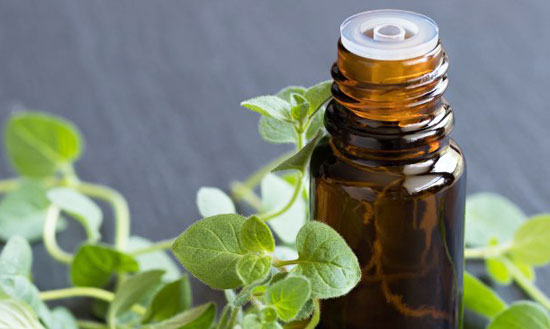Vitamin D Is More Effective Than Flu Vaccine, Study Says (2)
Read the first part of the article
Scientific Reviews Show Vaccinating Children and Elderly Is Ineffective

Cochrane has issued several reports addressing the effectiveness of flu vaccines on infants and the elderly – two groups that tend to be the most targeted by flu vaccine advertising – and all have had negative findings.
For children:
1. A large-scale, systematic review of 51 studies, published in the Cochrane Database of Systematic Reviews in 2006, found no evidence that the flu vaccine is any more effective than a placebo in children under two. The studies involved 260,000 children, age 6 to 23 months.
2. In 2008, another Cochrane review again concluded that “little evidence is available” that the flu vaccine is effective for children under the age of two. Even more disturbingly, the authors stated that:
“It was surprising to find only one study of inactivated vaccine in children under two years, given current recommendations to vaccinate healthy children from six months old in the USA and Canada. If immunization in children is to be recommended as a public health policy, large-scale studies assessing important outcomes and directly comparing vaccine types are urgently required.”
3. In a 2012 review, Cochrane concluded that “in children aged from two years, nasal spray vaccines made from weakened influenza viruses were better at preventing illness caused by the influenza virus than injected vaccines made from the killed virus. Neither type was particularly good at preventing flu-like illness caused by other types of viruses. In children under the age of two, the efficacy of inactivated vaccine was similar to placebo.”
The available evidence with regards to protecting the elderly is equally abysmal.
4. In 2010, Cochrane concluded that: “The available evidence is of poor quality and provides no guidance regarding the safety, efficacy or effectiveness of influenza vaccines for people aged 65 years or older.”
5.
Cochrane also reviewed whether or not vaccinating health care workers can help protect the elderly patients with whom they work. In conclusion, the authors stated that: “There is no evidence that vaccinating health care workers prevents influenza in elderly residents in long-term care facilities.”
Annual Flu Vaccinations May Raise Risk of More Serious Infections
Other studies have shown that with each successive annual flu vaccination, the protection afforded by the vaccine appears to diminish. Research published in 2014 concluded that vaccine-induced protection against influenza was greatest among those who had NOT received a flu shot in the previous five years. The flu vaccine may also increase your risk of contracting other, more serious influenza infections.
Data shows people who received the seasonal flu vaccine in 2008 had twice the risk of getting the H1N1 “swine flu” compared to those who didn’t receive a flu shot.
Compared to children who do not get an annual flu vaccine, those who receive influenza vaccinations have a three times higher risk of hospitalization due to influenza.
Research also shows that statin drugs – taken by 1 in 4 Americans over the age of 45 – may undermine your immune system’s ability to respond to the flu vaccine. When you consider the low efficacy rate of the flu vaccine in any given year, getting vaccinated if you’re on a statin may well be a moot point.
Independent science reviews have also concluded that influenza vaccine does not appear to prevent influenza-like illness associated with other types of viruses responsible for about 80 percent of all respiratory or gastrointestinal infections during any given flu season.
Other Foods and Supplements That Send Pathogens Packin’
Besides vitamin D, there are a number of other foods and supplements that can be beneficial for colds and influenza, including the following:
Garlic: Garlic has natural antiviral, antibiotic and antifungal activity and has long been hailed for its immune boosting effects.
The Cochrane Database, which has repeatedly demonstrated that the science in support of the flu vaccine is flimsy at best, has also reviewed studies on alternatives, including garlic.
Unfortunately, such research is harder to come by, as there’s no financial incentive driving it.
Still, in the singular study identified by the Cochrane group, those who took garlic daily for three months had fewer colds than those who took a placebo, and, when they did come down with a cold, the duration of illness was shorter – an average of 4.5 days compared to 5.5 days for the placebo group.
While this may not seem overly impressive, it’s still better than the results achieved by the flu drug Tamiflu!
Zinc: A Cochrane Database Review of the medical research on zinc found that when taken within one day of the first symptoms, zinc can cut down the time you have a cold by about 24 hours.
Zinc was also found to greatly reduce the severity of symptoms. Zinc was not recommended for anyone with an underlying health condition, like lowered immune function, asthma or chronic illness.
It is not recommended taking more than 50 mg a day, and it is not recommended taking zinc on a daily basis for preventive purposes as you could easily develop a copper imbalance that way.
Vitamin C: A very potent antioxidant; use a natural form such as acerola, which contains associated micronutrients.
You can take several grams every hour (use the liposomal form so you don’t get loose stools), till you are better. I never travel without a bottle of our liposomal C.
A pure and natural drink made from a combination of elderflower, yarrow, boneset, linden, peppermint and ginger put in a large jar with spring water – drink it after eight hours and it will combat a cold or flu.
Oregano Oil: The higher the carvacrol concentration, the more effective it is. Carvacrol is the most active antimicrobial agent in oregano oil.

Medicinal mushrooms, such as shiitake, reishi and turkey tail.
Propolis: A bee resin and one of the most broad-spectrum antimicrobial compounds in the world; propolis is also the richest source of caffeic acid and apigenin, two very important compounds that aid in immune response.
Olive leaf extract is widely known as a natural, non-toxic immune system builder.
Vitamin D Is Important for Optimal Health and Disease Prevention Year-Round
In related news, researchers are also homing in on how vitamin D may help protect against age-related diseases such as Alzheimer’s. Research showed vitamin D extends lifespan in nematode worms by 30 percent and helped slow or even reverse accumulation of beta amyloid protein, which is a hallmark of Alzheimer’s.
Vitamin D deficiency has also been linked to heart disease, cancer, diabetes, depression, autoimmune disease and many other chronic diseases.
As noted in an issue of Orthomolecular Medicine News: “Research on the health benefits of vitamin D continues at a rapid pace. There were 4,356 papers published in 2015 with vitamin D in the title or abstract and 4,388 in 2016.” Among some of the most impactful studies are ones demonstrating:
• Health benefits from sun exposure unrelated to vitamin D production.
One review concluded benefits of sun exposure includes lower rates of cancer, heart disease, dementia, myopia, macular degeneration, diabetes and multiple sclerosis. The majority of these benefits are due to the near-, mid- and far-infrared wavelengths.
According to the author: “The message of sun avoidance must be changed to acceptance of non-burning sun exposure sufficient to achieve [vitamin D] concentrations of 30 ng/mL or higher … and the general benefits of UV exposure beyond those of vitamin D.”
Also, while intermittent sun exposure is associated with higher rates of skin cancer, “the risks of these cancers is dwarfed by the reduced risk of internal cancers from sun exposure,” William Grant, Ph.D. writes.
• Benefits of higher vitamin D levels during pregnancy.
Research demonstrates preterm births steadily decrease as vitamin D levels increase among pregnant women. In one study, raising vitamin D blood concentrations from 20 to 40 ng/mL decreased preterm births by 59 percent.
• Reduction in cancer risk from vitamin D supplementation.
One pooled analysis showed that women with higher levels of vitamin D had much lower incidence rates of cancer — from a 2 percent per year cancer incidence rate at 18 ng/mL to 0.4 percent at 63 ng/mL.
Overall, maintaining a vitamin D serum level of 45 to 60 ng/mL year-round may be one of the simplest and most efficient ways to safeguard yourself against chronic disease and acute infections. When it comes to seasonal colds and influenza, the rate of protection you get from vitamin D is actually greater than what you’d get from a flu vaccination, and you don’t have to worry about potential side effects either – which in the case of the flu vaccine can be far worse than the original complaint.
While death and complete disability from a flu vaccine may be rare, so is dying from the flu itself. It is recommended weighing the risk of suffering a debilitating side effect of the flu vaccine relative to the more likely potential of spending a week in bed with the flu.
Remember, most deaths attributed to influenza are actually due to bacterial pneumonia, and these days, bacterial pneumonia can be effectively treated with advanced medical care and therapies like respirators and parenteral antibiotics.
The Role of Vitamin D in Disease Prevention
A growing body of evidence shows that vitamin D plays a crucial role in disease prevention and maintaining optimal health. There are about 30,000 genes in your body, and vitamin D affects nearly 3,000 of them, as well as vitamin D receptors located throughout your body.
According to a large-scale study, optimal Vitamin D levels can slash your risk of cancer by as much as 60 percent. Keeping your levels optimized can help prevent at least 16 different types of cancer, including pancreatic, lung, ovarian, prostate and skin cancers.
yogaesoteric
March 20, 2019
